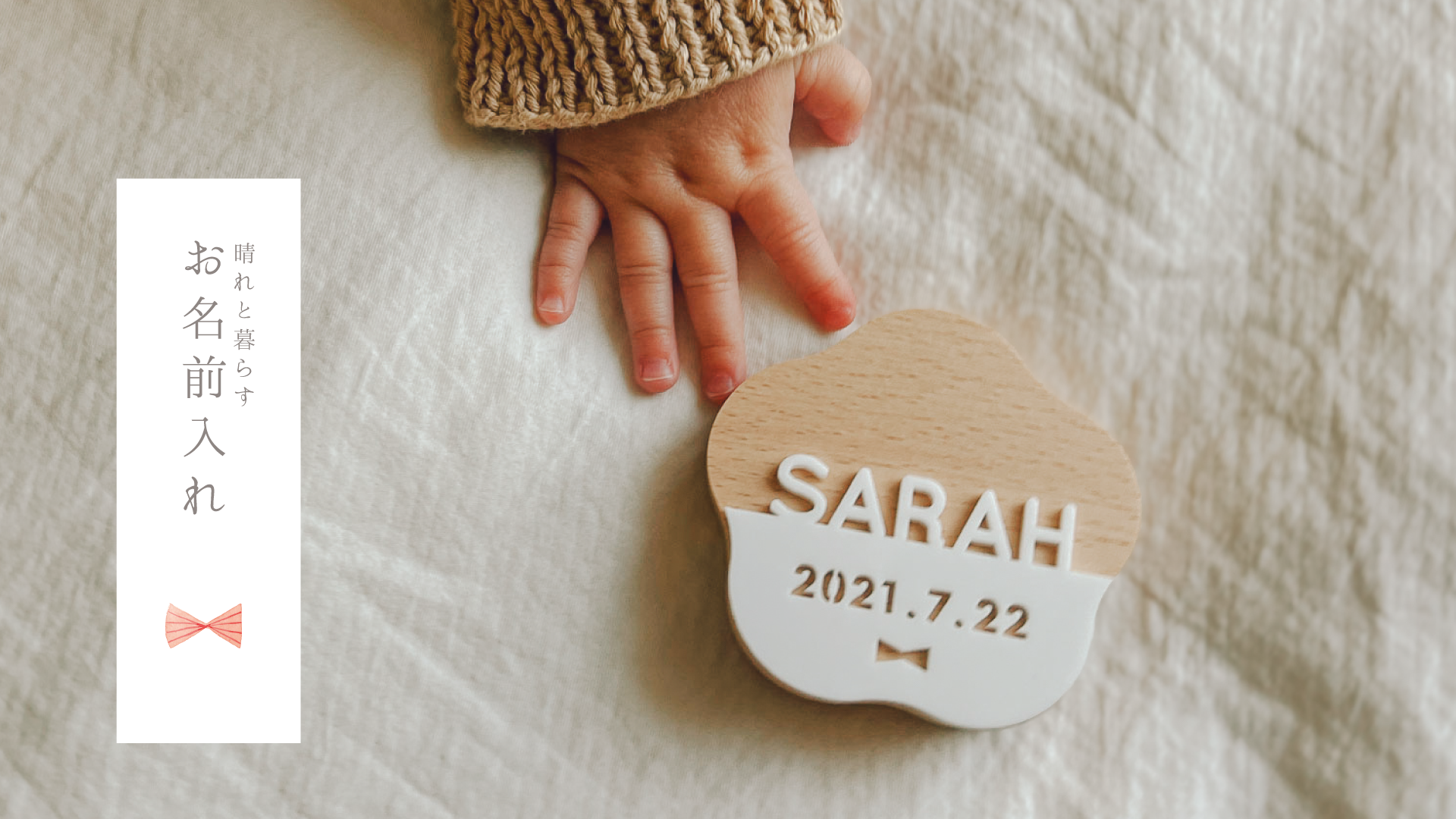The meaning behind the name
A baby's name is the first gift in life that will support and walk with the child throughout his or her life.
What kind of feelings should be put into naming the child on the Shichi-ya night, and how should the choice be made?
Here we will introduce basic knowledge about naming, recent trends, and naming tips.
1. Meaning and origin of the name
Naming is an important milestone in giving your baby a name.
In Japan, it has long been a tradition to display the baby's name book on the seventh day after birth, known as "Oshichi-ya," and show it to the family.
Names are filled with the parents' wishes and feelings, and sometimes family traditions or seasonal sentiment.
2. Timing of naming
The name is often decided by the Shichi-ya night, but there is no problem as long as it is done in time for the deadline for submitting the birth notification (within 14 days after birth).
Even if you can't make it in time for the Shichi-ya ceremony, it's okay to be flexible and think about it according to your physical condition and the situation.
3. How to choose a name: some hints
There is no right answer when it comes to naming your child, but the following points can be helpful:
-
Sound and feel : Many people place importance on ease of pronunciation and a soft sound.
-
Meaning of the kanji : Beautiful meaning, positive, characters related to nature, etc.
-
Strokes in the characters : Some families use name divination as a reference.
-
Using one character from a family member : Naming a child using one character from a parent or grandparent is also popular.
-
Seasonal sense and nature : It's great to get inspiration from seasonal flowers and scenery.
4. Recent Popular Trends (2020s onwards)
Naming trends are also changing little by little. Some notable changes in recent years include:
-
Names that evoke nature and color (e.g. Haruto, Tsumugi, Yuzuki)
-
Gender-neutral names
-
An old-fashioned yet new "modern Japanese" name
Kanji that are easy to read and have clear meanings are popular.
5. Content and format of the naming document
The naming book displayed at the Shichi-ya ceremony mainly contains the following information:
-
Baby's name (polite with furigana)
-
Date of birth (usually in the Japanese calendar)
-
Names of parents (and relationships, if applicable)
It is usually handwritten, but recently there are many designed naming cards and printed ones. There are no strict rules on the format of the naming card, so as long as you put your feelings into it, it's fine.
6. If you can't think of a name...
It's natural to be confused. Take your time and think it through until you are satisfied with the decision.
-
Couples share candidates
-
Search for sounds and kanji in books and apps
-
While taking into consideration the opinions of those around you, ultimately you should value your own feelings.
It's also a good idea to imagine what kind of name would suit your baby.
■ Conclusion
What's important is the "feeling"
The thoughts and wishes you put into the name will surely be conveyed to your baby.
Even if the name isn't perfect, knowing that it was chosen with your child's deepest thoughts in mind will be the best gift of all.





